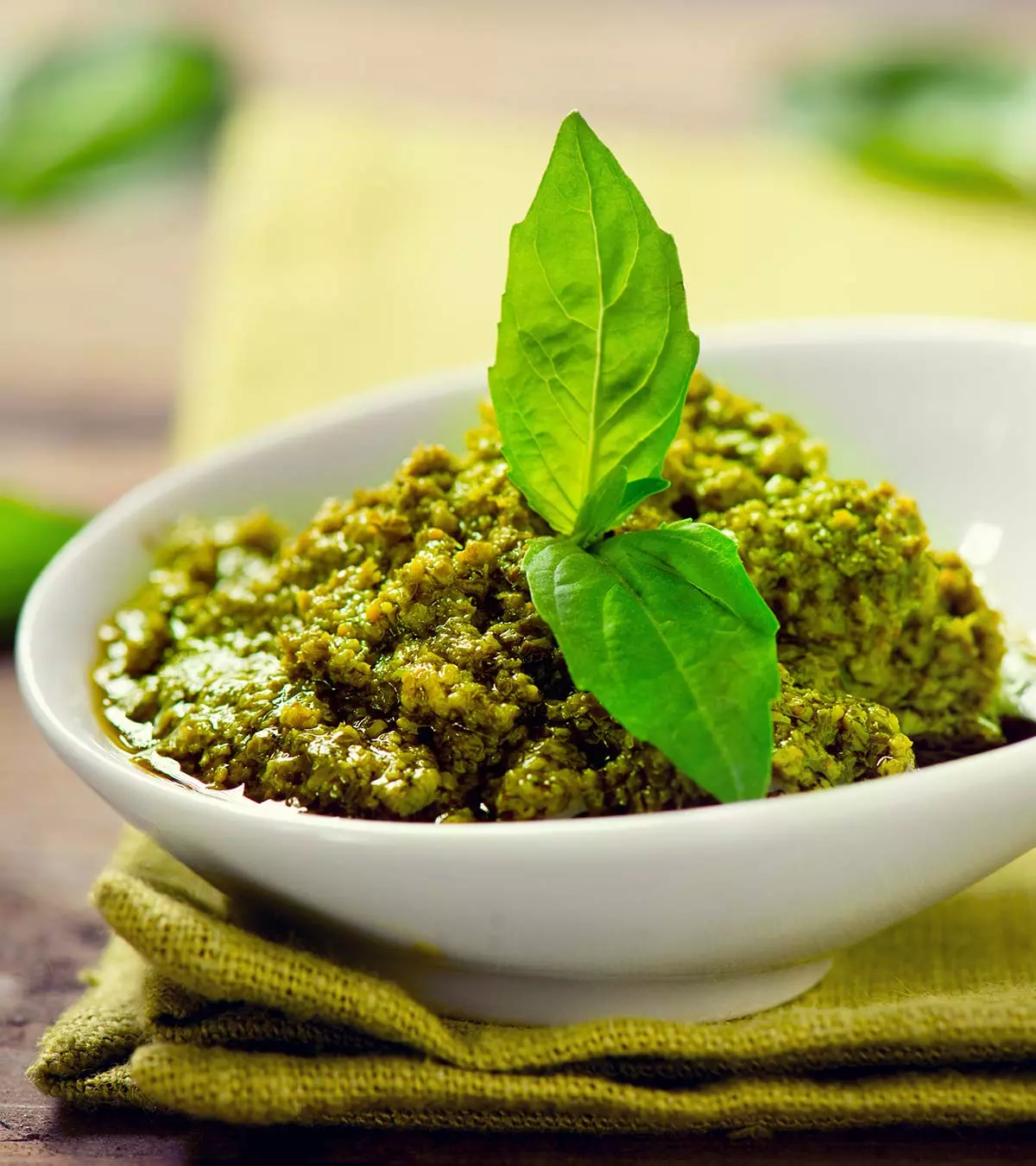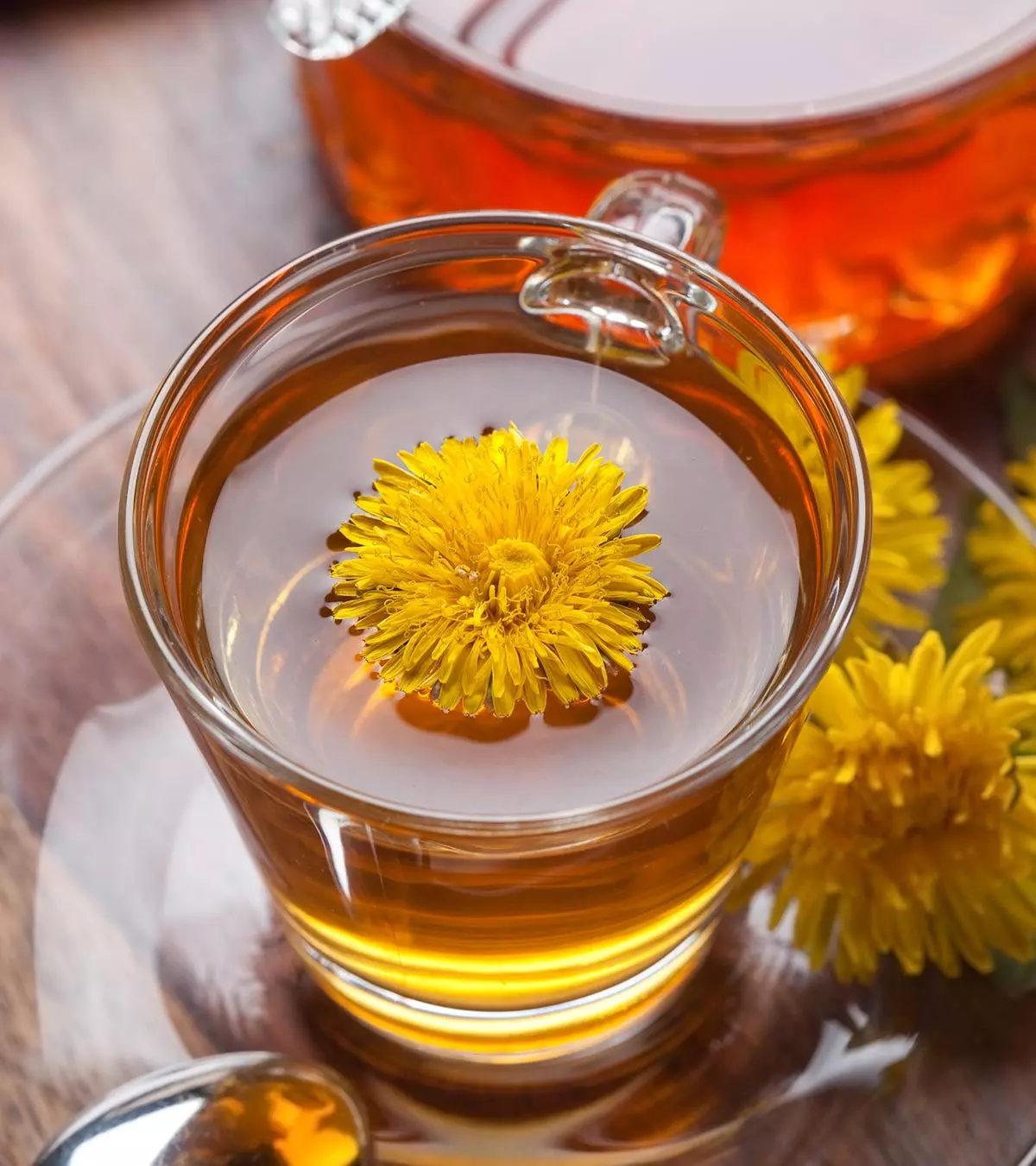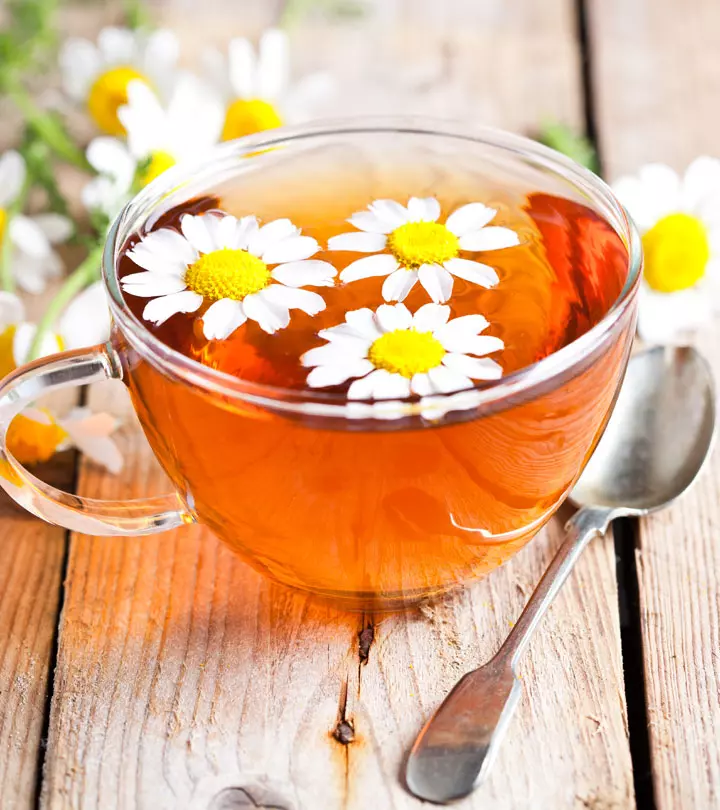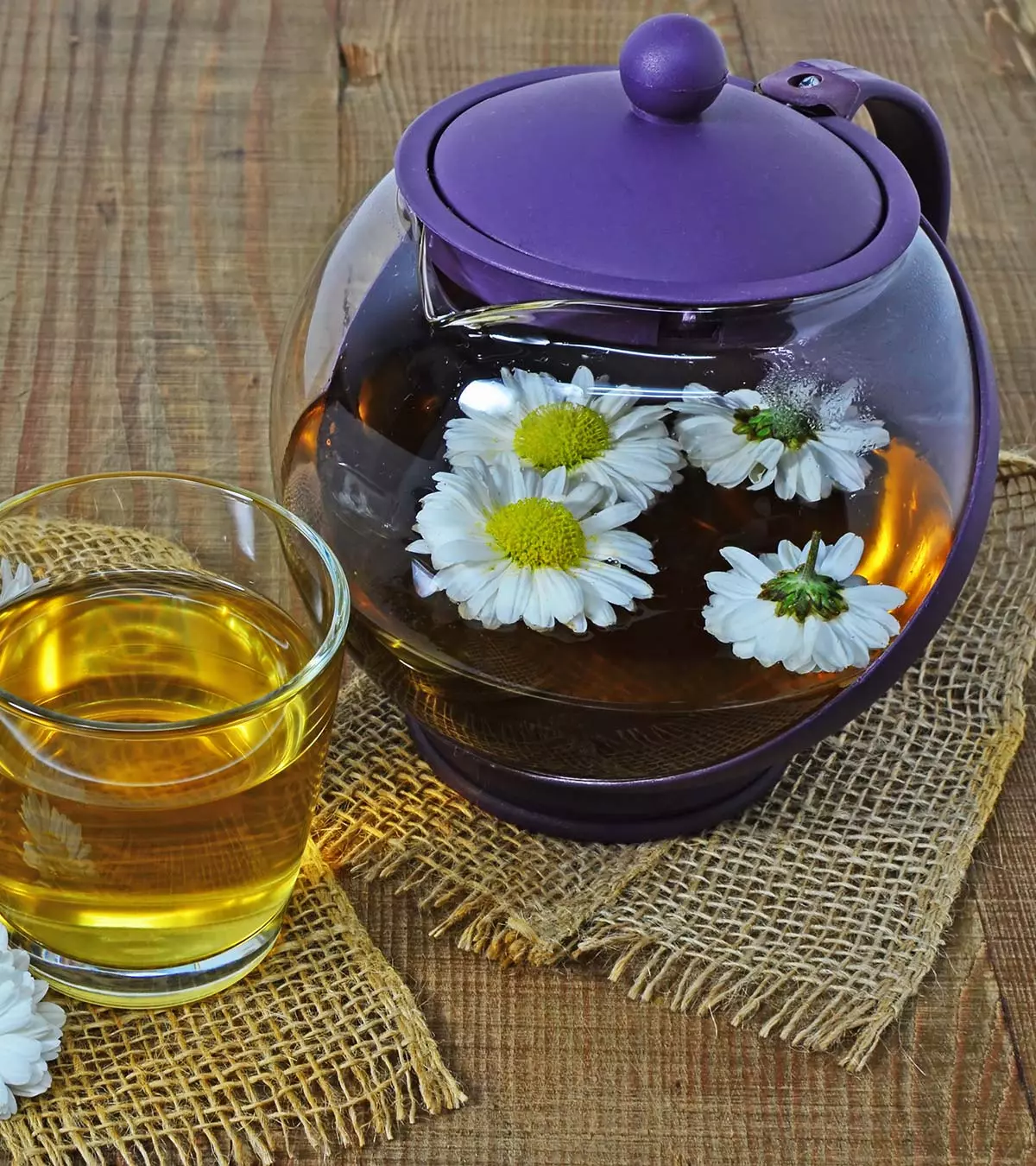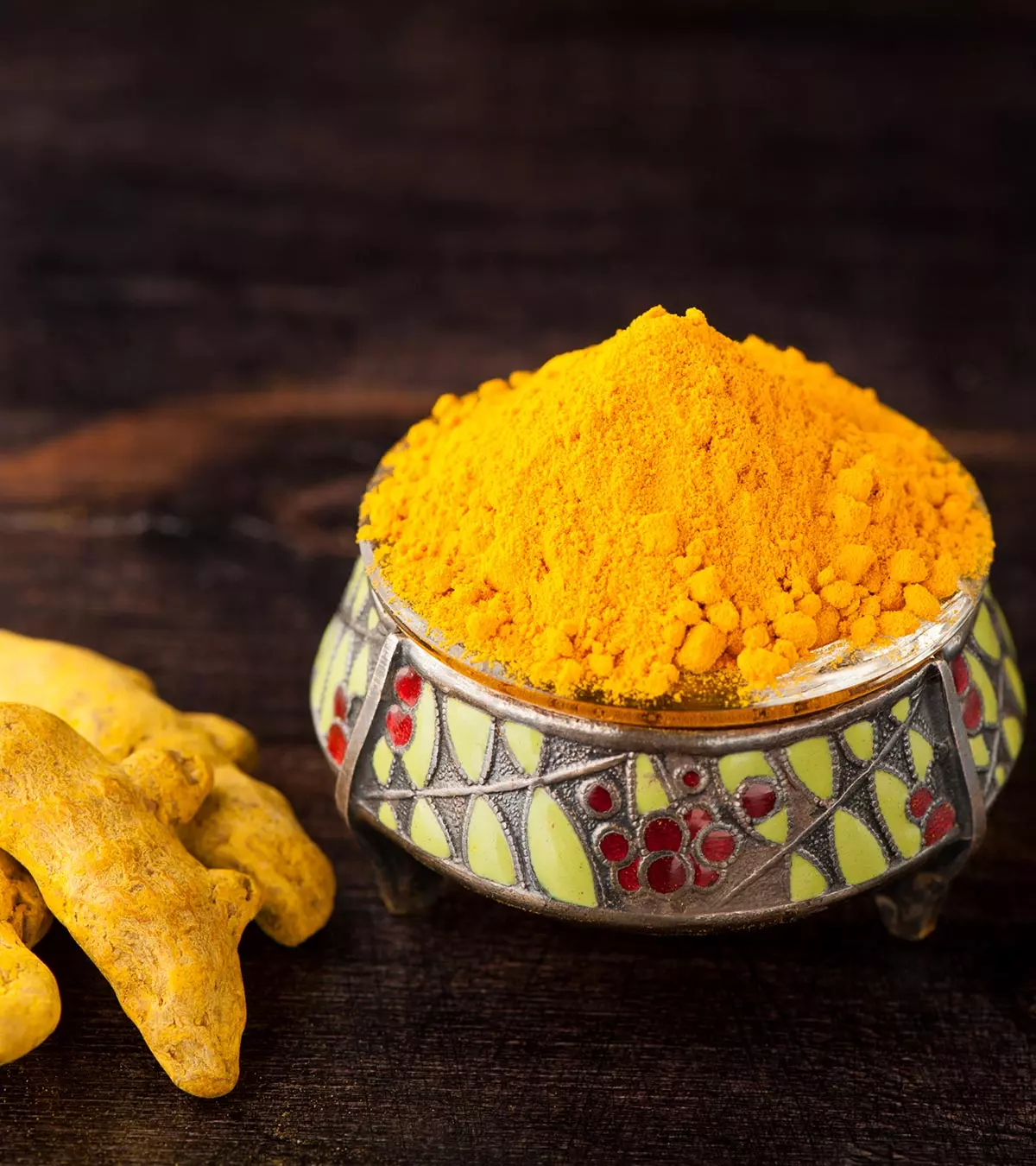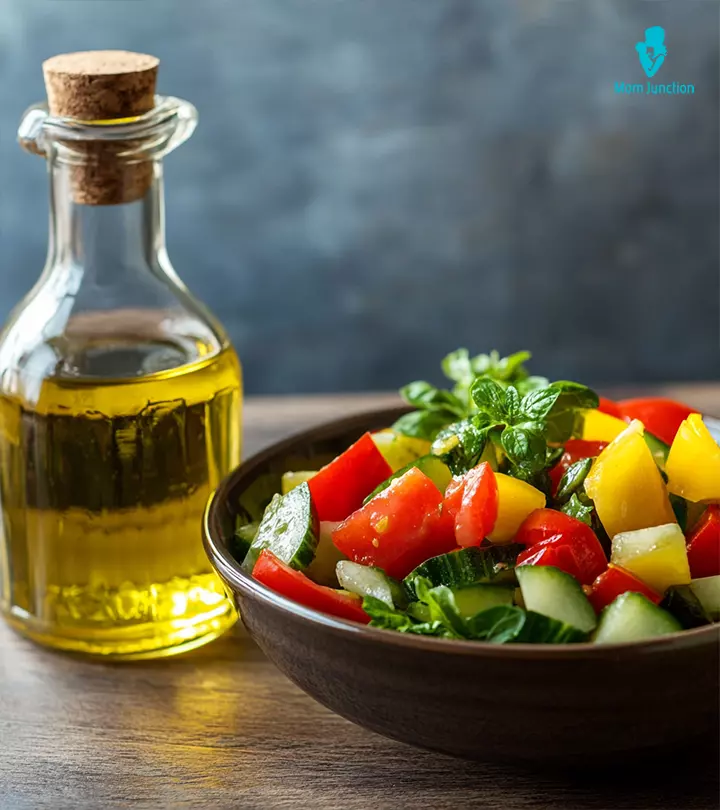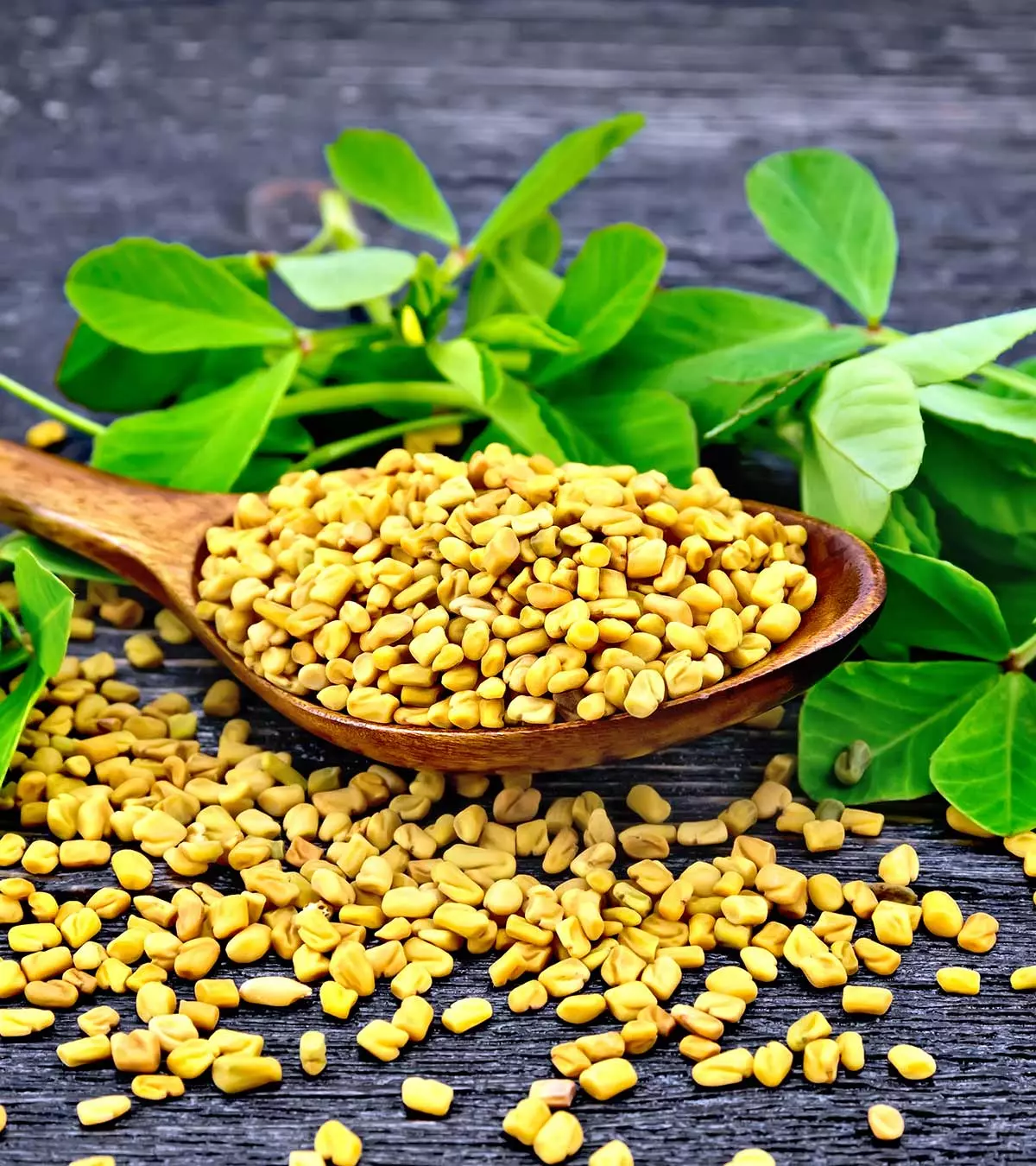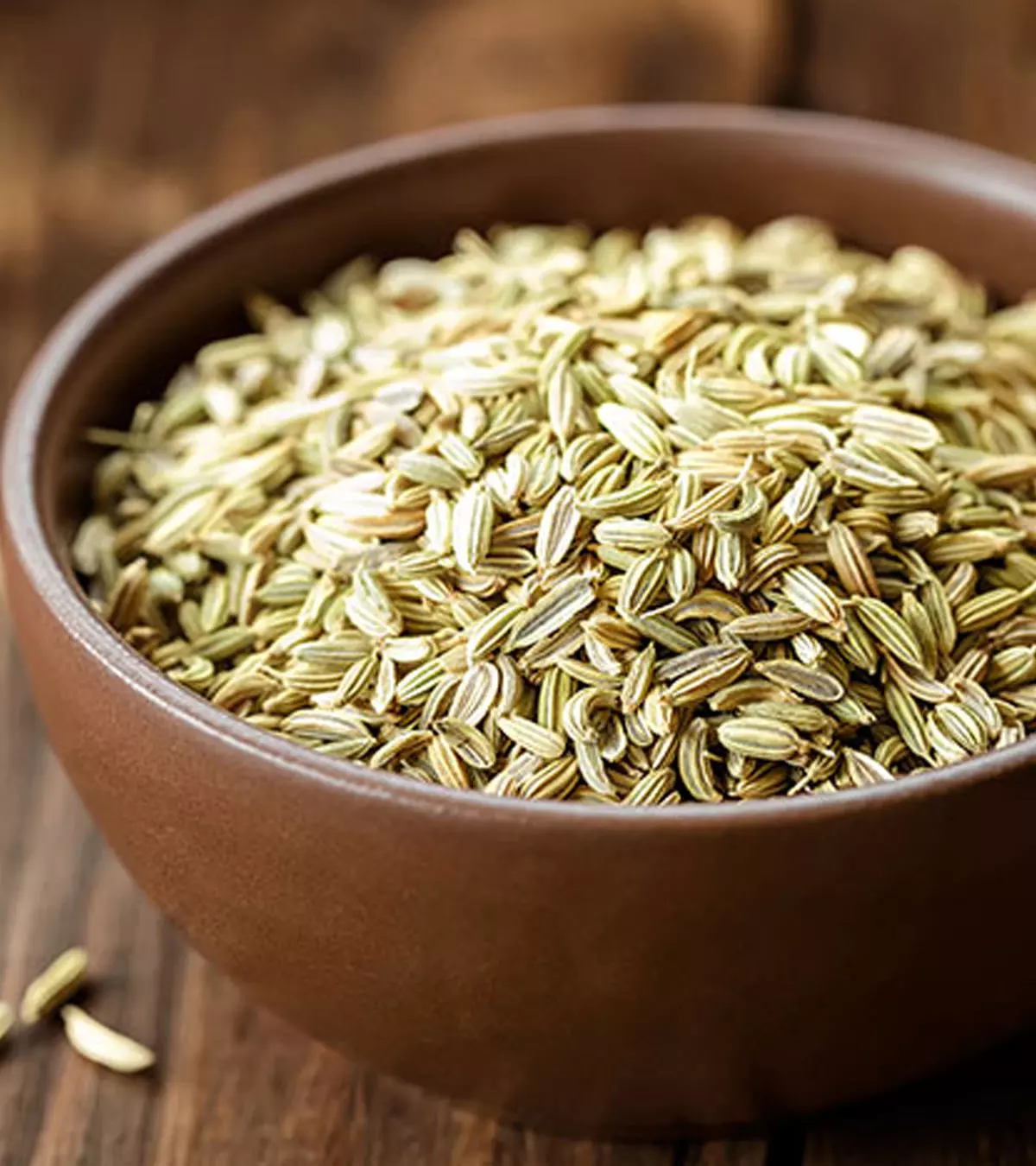
Image: ShutterStock
Fennel seeds, commonly known as Saunf in Hindi, are mildly sweet and aromatic herbs used for culinary and medicinal purposes. Several women are unsure of the safety of using fennel seeds during pregnancy.
These seeds are commonly used in Indian and Middle-eastern recipes with common use in ayurvedic medicine. They can also be used as mouth fresheners. However, little research has been done to understand their safety during pregnancy. Nevertheless, it is believed that consuming fennel in small quantities does not have any harmful effects on the baby.
During pregnancy, many women want to know how these seeds can impact their health and their baby’s health. Read this post further to learn about the benefits of fennel seeds for prenatal health and how to include them in your diet, and learn some of its possible side effects.
Key Pointers
- Fennel seeds are harmless in moderation and have no known harmful effects on the mother or the unborn child.
- Fennel seeds are used to treat morning sickness, indigestion, and bloating. They also encourage the liver to generate bile, which helps with digestion and increases appetite.
- Fennel seeds may interfere with blood clotting. If you have a bleeding issue, stay away from them because they might cause excessive bleeding and bruises.
- Fennel seeds tend to dry out the skin and increase menstrual flow, which can lead to vaginal bleeding.
Is It Healthy To Eat Fennel Seeds During Pregnancy?
There is not enough research indicating that consumption of fennel seeds could be safe during pregnancy. However, small amounts of these seeds are not known to have any harmful effect on the mother or the baby, probably because these amounts are not enough to bring about the characteristic hormonal changes induced by fennel seeds. You may have them as natural remedies to get relief from gas and bloating (1).
According to Aleta Storch, MS, a Washington-based registered dietitian nutritionist, “Fennel contains compounds that have estrogenic effects that can alter the production and release of hormones associated with pregnancy and menstruation. Eating small amounts of fennel (i.e., seeds incorporated in cooking) and/or eating fennel infrequently is safe during pregnancy because these amounts will not provide enough of the compounds to negatively affect fetal development.”
How Are Fennel Seeds Useful During Pregnancy?

Fennel seeds are used as a herbal medicine for treating certain ailments. Some of them are mentioned next.
- Fennel seeds are used for nausea and morning sickness that is common during pregnancy, especially the first trimester. They contain anesthetic components that help reduce the queasy feeling in the tummy (2).
- The anti-flatulence property of fennel seeds relaxes the intestinal muscles. It is therefore useful for digestive health and offers relief from indigestion and bloating (3).
- They are known to stimulate the liver to produce bile, promote digestion, and thus increase appetite (4).
Julius Cermak, a naturopathic herbalist-practitioner and holistic health consultant from New York, says, “Fennel acts as an intestinal antispasmodic (relieves intestinal cramping), anodyne (soothes discomfort and pain), carminative (relieves gas pressure), and stomachic (tones and strengthens the stomach).”
Nutritional Value Of Fennel Seeds
Since fennel seeds are mostly used as a spice, the nutritional value may not be very significant. However, here is a description of the major nutrients found in 100g of fennel seeds (5).
| NUTRIENT | AMOUNT |
|---|---|
| Protein | 15.8g |
| Fiber, total dietary | 398g |
| Calcium, Ca | 1200mg |
| Iron, Fe | 18.5mg |
| Potassium, K | 1690mg |
| Magnesium, Mg | 385mg |
| Sodium, Na | 88 mg |
| Thiamin | 0.408mg |
| Niacin | 6.05mg |
| Riboflavin | 0.353mg |
How To Include Fennel Seeds In Pregnancy?

Fennel seeds are slightly sweet and have a great aroma. You can use this traditional medicine in your diet as:
- Flavoring agents for cooking
- A breath freshener after a meal
- Herbs to make a tea that helps curb nausea
Fennel Tea Recipe For Pregnancy Nausea
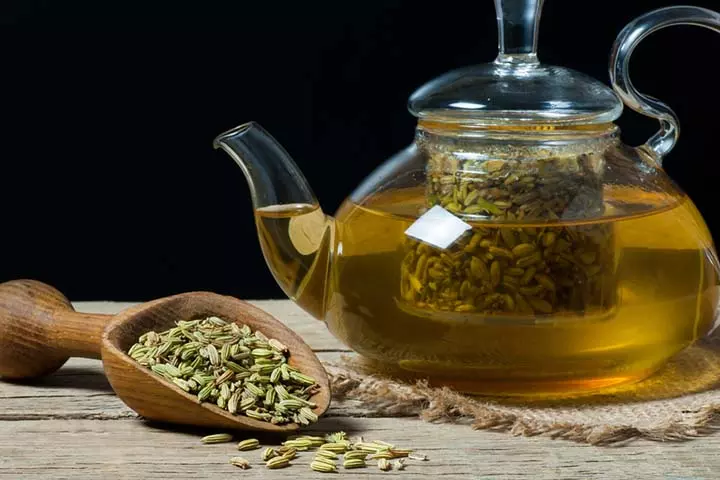
Fennel tea has excellent medicinal properties and offers relief from several pregnancy issues such as nausea and morning sickness (6).
You will need:
- 1tsp fennel seeds
- 1 cup water
- Jaggery or honey for taste
How to make:
- Crush or powder the fennel seeds in a blender.
- Take water in a bowl and bring it to a boil. Add the crushed fennel seeds into the boiling water.
- Close with a lid, and turn off the gas.
- Let it remain for five minutes and then filter the brewed tea.
- Mix either jaggery or honey according to your preference.
- Sip while warm
 Quick tip
Quick tipConsuming fennel seeds in little amounts will not cause any harm. In fact, fennel for increasing milk supply is also commonly recommended due to its potential benefits for lactating mothers. But, you should be cautious before including them in your pregnancy diet. for the sake of your maternal health. Fennel seeds are also caffeine-free, which makes it a healthy addition to food and drinks during pregnancy.
An anonymous pregnant woman shares a simple fennel seed juice recipe on her blog, which she consumed during her pregnancy on the advice of her elders. She says, “These are some homemade herbal juices I took in my pregnancy at the advice of my elders. Take a frying pan and heat it. Now add two spoons of fennel seeds in it and fry till it becomes black. Now add three glasses of water and Palm sugar, and then let it boil in a simmer flame. After 20 min, it becomes 1 glass of juice. Now switch off the flame, filter the juice, and drink it. This juice can be taken in the 9th month (ⅰ).’’However, this is anecdotal practice, and it is advisable to seek a doctor’s approval before trying it.
Possible Side Effects Of Eating Fennel Seeds During Pregnancy

Some of the potentially harmful effects of consuming fennel seeds during pregnancy are mentioned here.
- They might affect the blood’s ability to clot. A bleeding disorder is a contraindication for using fennel, as it makes you prone to bruises and excessive bleeding.
- Fennel seeds tend to make the skin drier and should be avoided if you have sensitive skin. People allergic to some vegetables/ plants such as carrot, celery and mugwort show allergic responses to fennel as well (7).
- They possess emmenagogue properties and will stimulate menstrual flow, causing vaginal bleeding that could ultimately lead to miscarriage (8).
Frequently Asked Questions
1. Can fennel seeds help with constipation during pregnancy?
Fennel seeds may help with constipation during pregnancy as they have laxative properties. It is used to treat mild digestive disorders because it stimulates motility and has an antispasmodic effect at higher concentrations (11).
2. Can fennel seeds help with heartburn during pregnancy?
Fennel seeds are believed to have properties that may help with heartburn and digestion during pregnancy (12).
3. Can fennel seeds help with respiratory problems during pregnancy?
Fennel seeds may help alleviate symptoms associated with a respiratory infection. It may be effective in treating cough and bronchitis (13).
4. Are there any studies on the effects of fennel seeds during pregnancy?
Research on fennel seeds during pregnancy is limited, but some studies suggest that moderate consumption may be safe. However, more research is needed to confirm this. It’s always best to consult a healthcare provider for personalized advice.
Given that there are not enough studies to determine the harmful effects and safety of fennel seeds during pregnancy, it is better to consult your Ob/GYN before consuming them. Their distinct taste and flavor may aid with morning sickness, but if taken in excess or in the presence of any underlying illness, they may cause pregnancy complications. Therefore consult with your doctor about the recommended amount and opt for any safer common alternative medicine such as ginger or lemon that could provide similar benefits and relief from nausea or vomiting.
Infographic: Ways To Select And Store Fennel Seeds To Keep Them Fresh
In order to extract the benefits of fennel seeds, you should know how to pick the best quality and aromatic ones. Moreover, if you consume them over weeks, there is a way of storing them to retain their freshness. So explore the tips on selecting and storing fennel seeds for your pregnancy diet. Illustration: Momjunction Design Team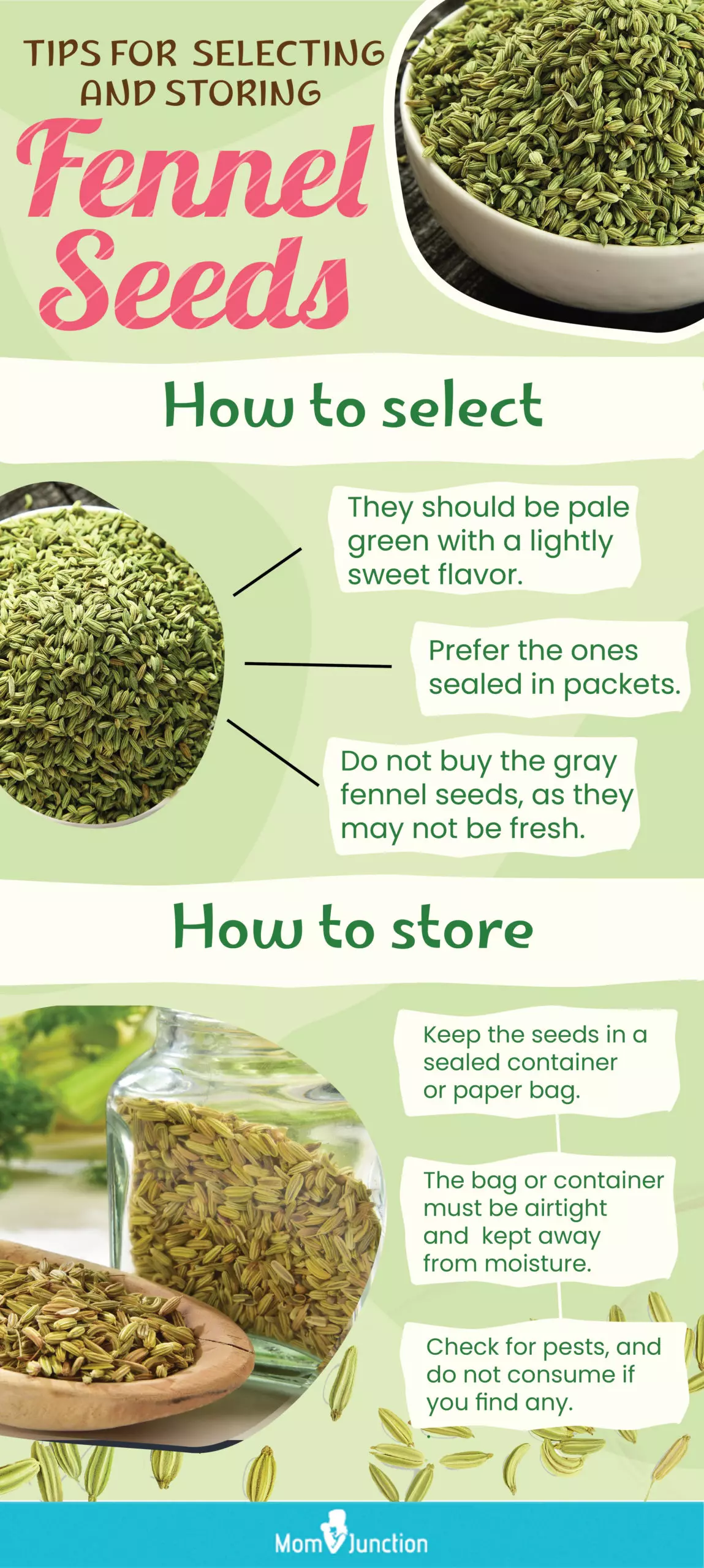
Illustration: Fennel Seeds During Pregnancy: Uses And Possible Side Effects

Image: Stable Diffusion/MomJunction Design Team
Personal Experience: Source
MomJunction articles include first-hand experiences to provide you with better insights through real-life narratives. Here are the sources of personal accounts referenced in this article.
i. Healthy Delivery.https://knowthybaby.wordpress.com/category/mothers-spot/
References
1. Joel Evans & Robin Aronson; The Whole Pregnancy Handbook: An Obstetrician’s Guide to Integrating Conventional and Alternative Medicine Before, During, and After Pregnancy
2. Dr Irina Webster; Healthy Pregnancy From A To Z: An Expectant Parent’s Guide To Wellness; page 153
3. Fennel; Flavor Essentials A Study Of Herbs And Spices; Whatcom Community College (WCC) (2009)
4. Mashalah Daneshvar et al.; Effects of biological and chemical fertilizers nitrogen on yield quality and quantity in Fennel (Foeniculumvulgare Mill); International Journal of Biosciences | IJB | (2014)
5. Spices, Fennel seed; Food Data Central.
6. Christine Lyford; Natural Remedy Use During Pregnancy, Labor, and Breastfeeding; The Kabod (2024)
7. James L et al.; Spice allergy; CME review; Ann Allergy Asthma Immunol (2011)
8. Ouis Nawel et al.; Effect of the Essential Oils from Parsley and Fennel Seeds on the Growth of Lactobacillus Casei Subsp Rhamnosus; OMICS International (2012)
9. Fast Facts: Pregnancy and Oral Health; CDC
10. Ajithkrishnan CG; An in-vivo evaluation of fennel seeds chewing on salivary pH; Journal of Oral Health and Community Dentistry
11. Paulo D Picon et al.; Randomized clinical trial of a phytotherapic compound containing Pimpinella anisum, Foeniculum vulgare, Sambucus nigra, and Cassia augustifolia for chronic constipation; BMC Complement Altern Med (2010)
12. Herbal remedies for heartburn; Harvard Health Publishing
13. Ajithkrishnan CG; May Plant of the Month – Fennel; Florida School of Holistic Living
Community Experiences
Join the conversation and become a part of our nurturing community! Share your stories, experiences, and insights to connect with fellow parents.
Read full bio of Dr. Shikha Sharma
- Julius Cermak is a naturopathic herbalist specializing in holistic health, traditional Chinese medicine, and acupuncture. He graduated in Biomedical Technology from the Technical University of Liberec and completed his Diploma in Herbal Medicine from the College of Naturopathic Medicine in London, UK.
 Julius Cermak is a naturopathic herbalist specializing in holistic health, traditional Chinese medicine, and acupuncture. He graduated in Biomedical Technology from the Technical University of Liberec and completed his Diploma in Herbal Medicine from the College of Naturopathic Medicine in London, UK.
Julius Cermak is a naturopathic herbalist specializing in holistic health, traditional Chinese medicine, and acupuncture. He graduated in Biomedical Technology from the Technical University of Liberec and completed his Diploma in Herbal Medicine from the College of Naturopathic Medicine in London, UK. - Aleta is an anti-diet dietitian, therapist, and Certified Body Trust® provider, living in the Pacific-North-West. She did her education at Bastyr University and owns Wise Heart Nutrition that specializes in providing anti-diet, values-centered, body liberation work.
 Aleta is an anti-diet dietitian, therapist, and Certified Body Trust® provider, living in the Pacific-North-West. She did her education at Bastyr University and owns Wise Heart Nutrition that specializes in providing anti-diet, values-centered, body liberation work.
Aleta is an anti-diet dietitian, therapist, and Certified Body Trust® provider, living in the Pacific-North-West. She did her education at Bastyr University and owns Wise Heart Nutrition that specializes in providing anti-diet, values-centered, body liberation work.
Read full bio of Rebecca Malachi
Read full bio of Swati Patwal
Read full bio of Lorraine Teron





 Quick fact
Quick fact
